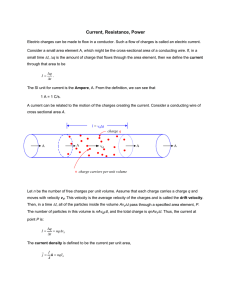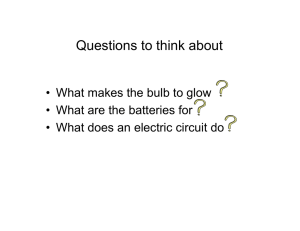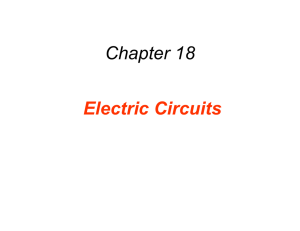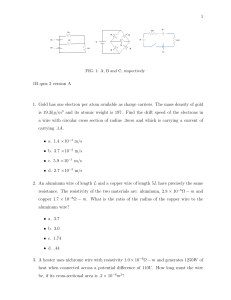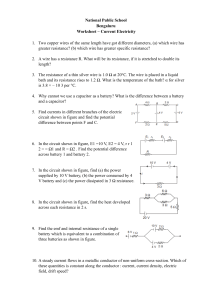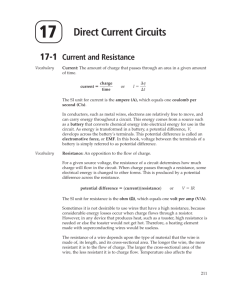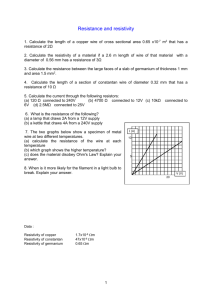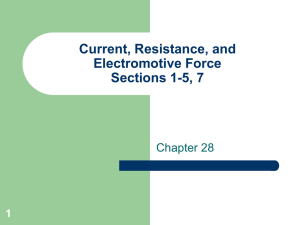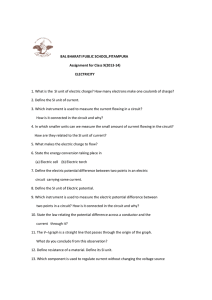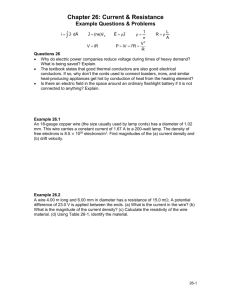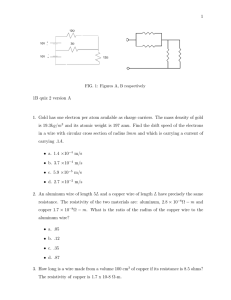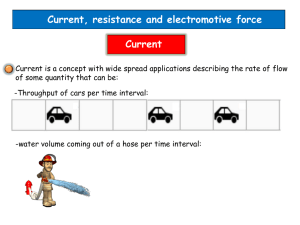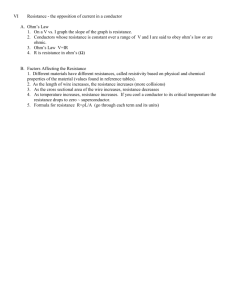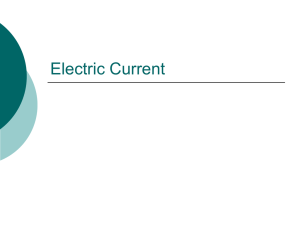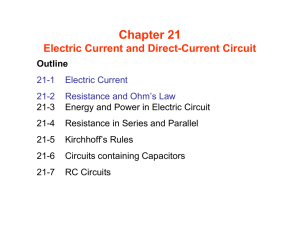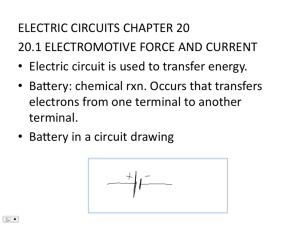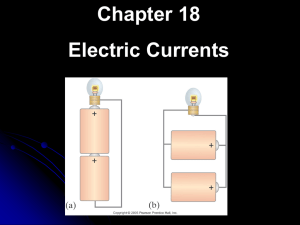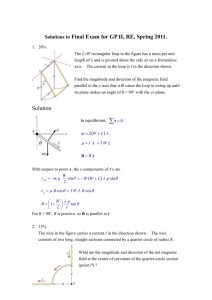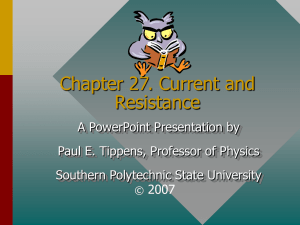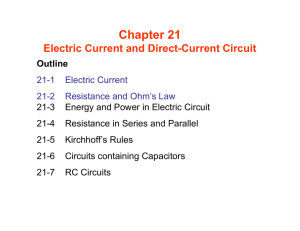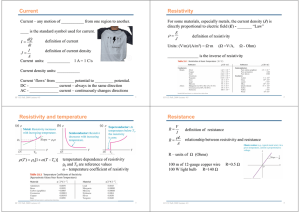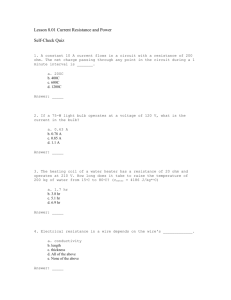File - I Love Physics Forever!
advertisement
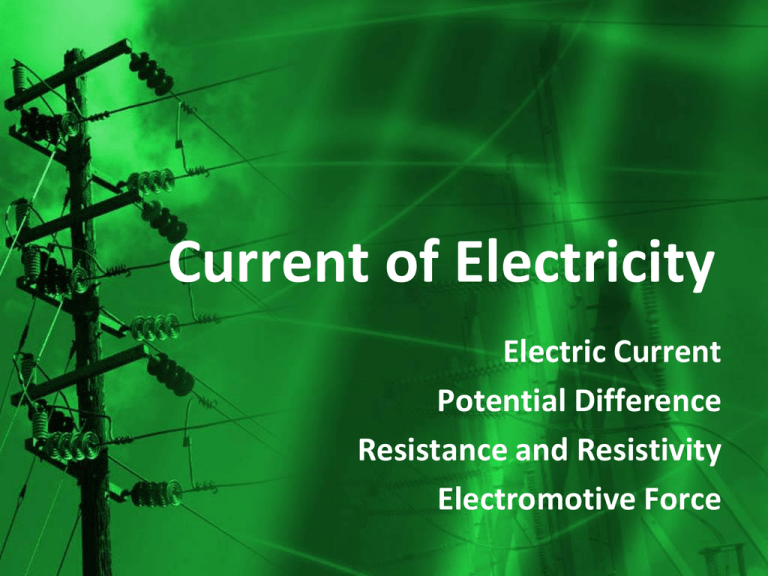
Current of Electricity Electric Current Potential Difference Resistance and Resistivity Electromotive Force What is electric current? Rate of flow of electrical charges I = Q/t Unit: Cs-1 ̴Ampere, A Definition of Coulomb Q = It A coulomb is the amount of charge that in one second crosses a section of a circuit in which there is a current of one ampere. Example 1 A fully charge 12-V battery can supply a total charge of 100kC. The starter motor of a car requires 200A for an average period of 2.0 s. The battery does not recharge because of a fault. What is the maximum number of times the starter motor of the car can be used? Potential Difference Energy that is used in the circuit per unit charge passing through from one point to another Energy used by resistors Potential Difference Energy converted per unit charge Power converted per unit current Units: JC-1, WA-1 ̴Volt, V Resistance Potential difference divided by current Units: VA-1 ̴Ohm, Ω Ohm’s Law The current through a conductor is proportional to the potential difference across it Provided its temperature remains constant. Resistivity, ρ Electrical property of a material Conducting ability of different materials R α Length of wire R α 1/Cross-sectional Area of wire (See p. 248, Table 14.2) Example 1 A cylindrical wire 4.0 m long has a resistance of 31 Ω and is made of metal of resistivity 1.0 x 10-6 Ωm. What is the radius of the cross-section of the wire? Example 2 Two wires P and Q made of the same material and of the same length are connected in parallel to the same voltage supply. Wire P has diameter 2 mm and wire Q has diameter 1 mm. What is the ratio ? Electromotive Force (emf) Energy that is supplied in the circuit per unit charge passing through from one point to another Energy from battery or power supply Internal Resistance, r Energy lost per unit charge, Ir Energy supplied per unit charge, ε - Ir Example 1 The emf of the battery is 9.0 V. The reading on the voltmeter is 7.5 V. What is the current I? Electrical Power Energy per unit time P = VI and derived equations Unit: Js-1 ̴ Watt, W Example 1 Two heating coils X and Y, of resistance Rx and Ry respectively, deliver the same power when 12 V is applied across X and 6 V is applied across Y. What is the ratio Rx/Ry? Example 2 Which circuit has greater pd across the resistor? Which circuit has greater power dissipation in the resistor?
